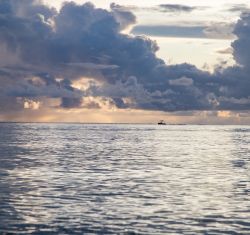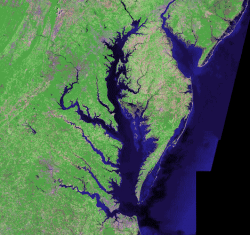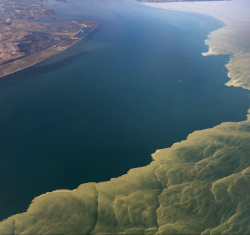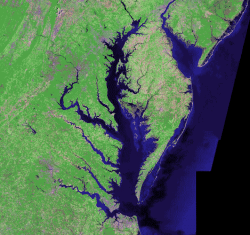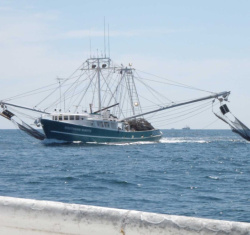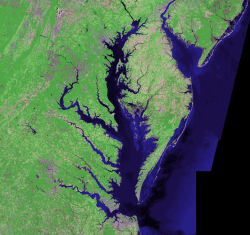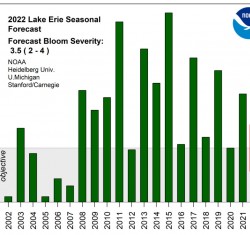
 back to all faculty
back to all faculty
Don Scavia

About
Don Scavia, Professor of Environment and Sustainability and Professor of Environmental Engineering, retired from active faculty status at the end of 2017. During his time at U-M, he and students and postdocs developed and applied numerical models and assessments at the science policy interface, focused on the effects of land use and climate change on coastal marine and Great Lakes ecosystems. From 2009-2016, he was the Graham Family Professor of Sustainability, Special Counsel to the U-M President for Sustainability, and the first Director of the Graham Sustainability Institute. He is a member of the National Academies of Sciences, Engineering, and Medicine’s Roundtable on Science and Technology for Sustainability.
Don served previously as SEAS Research Associate Dean, Director of Michigan Sea Grant, and Director of U-M’s cooperative institute with NOAA. Prior to coming to U-M in 2004, he held positions between 1975 and 2003 as Chief Scientist of NOAA's National Ocean Service, Director of the National Centers for Coastal Ocean Science, and a research scientist at NOAA’s Great Lakes Environmental Research Laboratory.
Publications
Scavia, D., I. Bertani, D.R. Obenour, R.E. Turner, D.R. Forrest, A. Katin. In press. Ensemble modeling informs environmental policy making: the case of hypoxia in the northern Gulf of Mexico. Proc. Nat. Acad. Sci. www.pnas.org/cgi/doi/10.1073/pnas.1705293114
Testa, J.M., J.B. Clark, W.C. Dennison, E.C. Donovan, A.W. Fisher, W. Ni, M. Parker, D. Scavia, S.E. Spitzer, A.M. Waldrop, V.M.D. Vargas, G. Ziegler. 2017 Ecological forecasting and the science of hypoxia in Chesapeake Bay BioScience. doi:10.1093/biosci/bix048
Scavia, D., M. Kalcic, R. Logsdon Muenich, N. Aloysius, I. Bertani, C. Boles, R. Confesor, J. DePinto, M. Gildow, J. Martin, J. Read, T. Redder, D. Robertson, S. Sowa, Y. Wang, H Yen. 2017 Multiple models guide strategies for agricultural nutrient reductions. Frontiers in Ecology and the Environment. 15: 126–132
Bertani, I., C. E. Steger, D. R. Obenour, G. L. Fahnenstiel, T. B. Bridgeman, T. H. Johengen, M. J. Sayers, R. A. Shuchman, D. Scavia. 2016. Tracking cyanobacteria blooms: do different monitoring approaches tell the same story? Science of the Total Environment 575: 294-308
Scavia, D., J.V. DePinto, I. Bertani. 2016. A Multi-model approach to evaluating target phosphorus loads for Lake Erie. J. Great Lakes Res. 42: 1139-1150
Kalcic, M., C. Kirchhoff, N. Bosch, R. L. Muenich, M. Murray, J. Gardner. D. Scavia. 2016. Engaging stakeholders to define feasible and desirable agricultural conservation in western Lake Erie watersheds. Env. Sci. Technol. 50:8135-5145
Muenich, R.L., M. Kalcic, D. Scavia. 2016. Evaluating the impact of legacy P and agricultural conservation practices on nutrient loads from the Maumee River Watershed. Env. Sci. Technol. 50: 8146-8154
Rucinski, D., DePinto, J., Beletsky, D., Scavia, D. 2016 Modeling hypoxia in the Central Basin of Lake Erie under potential phosphorus load reduction scenarios. J. Great. Lakes Res. 42: 1206-1211
Bocaniov, S. and D. Scavia 2016 Temporal and spatial dynamics of large lake hypoxia: Integrating statistical and three-dimensional dynamic models to enhance lake management criteria. Water Resources Res. (Supplemental Information) 52: 4247-4263
Bertani, I, D.R. Obenour, C. E. Steger, C. A. Stow, A. D. Gronewold, D. Scavia 2016. Probabilistically assessing the role of nutrient loading in harmful algal bloom formation in western Lake Erie. J Great Lakes. Res. 42: 1184:1192
My students, postdocs, and I combine numerical models and environmental assessments to improve the understanding of interactions between human activities on land and their impacts on coastal marine and freshwater ecosystems. Most of our recent work has focused on impacts on the iconic Gulf of Mexico, Chesapeake Bay, and Great Lakes. My research also supports development and application of Integrated Assessment, a tool that brings together natural systems science, social science, engineering, and environmental policy making.of nutrient loads and climate change on hypoxia in the Gulf of Mexico and the Chesapeake Bay.
Courses Taught:
- NRE 580: Integrated Problem Solving
- NRE 501: Integrated Assessment
- NRE 639: Great Lakes Science and Management
- NRE 639: Nutrient Pollution in Aquatic Ecosystems
- NRE 369: Role of MPA’s in Ecosystem Management
- ENVIRON 399: Junior Honors Seminar
- ENVIRON 499: Senior Honors Seminar
PhD, University of Michigan (environmental engineering)
MS, Rensselaer Polytechnic Institute (environmental engineering)
BS, Rensselaer Polytechnic Institute (environmental engineering)
Editorial Boards
Associate Editor, Frontiers in Ecology and Environment, ESA, 2002-2006
Associate Editor, Estuaries and Coasts, Estuarine Research Federation, 1998-2007.
Board of Directors/Trustee
Great Lakes Observing System Board of Directors, 2009-2013
Mpala Wildlife Conservancy Research Center, Trustee, 2011-2014
Secretary, International Association for Great Lakes Research, 1983-1986.
Board of Directors, American Society for Limnology and Oceanography, 1987-1990.
Advisory Boards
NAS Roundtable on Science and Technology for Sustainability, 2016-present
External Review Board, LA Center of Excellence, Water Institute of the Gulf, 2016-present
National Wildlife Federation Great Lakes Leaders Council, 2009 – present
Annis Water Resources Institute, Grand Valley State, 2007 - present
Technical Advisory Committee, Healing our Waters Great Lakes Coalition, 2006-present
Environmental Law and Policy Center, 2010-2013
NSF Committee on CLEANER/WATERS Network, 2005-2007
Central Michigan University Biological Station, 2008-2010
Review Committee Membership
Georgia Sea Grant Program Review, 2015
Hawaii Sea Grant Program Review, 2014
EPA Science Advisory Board Panel to review the Great Lakes Restoration Initiative, 2012
NRC Panel to review Missouri River Sediment Planning, 2011
EPA Board of Scientific Counselors Subcommittee to Review EPA Fellowship programs, 2006
Review of Darren Freshwater Institute, Rensselaer Polytechnic Institute, 2005
Interagency, Intergovernmental, and Multi-sector Committees
Vice Chair, National Ocean Partnership Program Working Group, 1996-1999
Co-Chair, Subcommittee on U.S. Coastal Ocean Science, NSTC/CENR
Co-Chair Ecosystem Work Group, NSTC/CENR
Co-Chair Subcommittee on Ecological Systems, CENR
Chair, Hypoxia Assessment Team, CENR
Co-Chair Coastal Research and Monitoring Team, Clean Water Action Plan
Co-Chair, USGCRP Coastal Assessment Team



